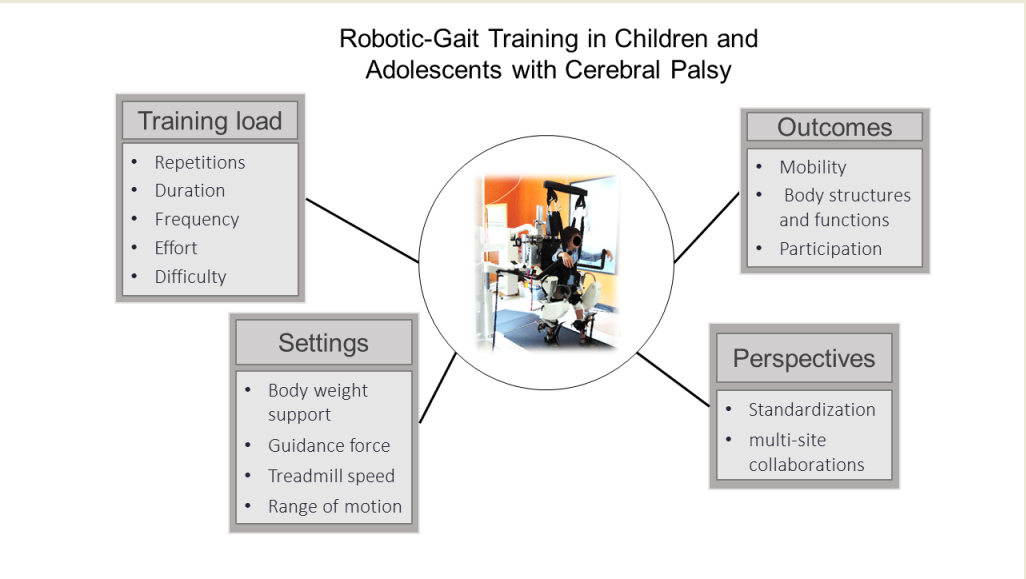About 70% of children and adolescents with cerebral palsy experience gait impairments which affect their autonomy and well-being. Robotic-assisted gait training using the Lokomat is particu-larly promising for rehabilitation as it provides a standardized environment favoring the massive repetition of the movement, in which physical demands are low on the therapist and high training loads can be achieved. As no guidelines exist regarding training protocols and Lokomat settings, the goal of this study was to review the literature on Lokomat-assisted gait therapy and possibly make training recommendations. The twelve studies reviewed reported both positive and null effects of Lokomat training on gait. Half of the studies combined Lokomat with other types of training and only five used a control intervention to assess its benefit. Overall, training was administered 1-5 times per week for 20-60 minutes, over 1-12 weeks. Although Lokomat settings were not always described, progressively decreasing body-weight support and guidance, while increasing treadmill speed appear to be prioritized. The variety of training protocols and settings used did not allow pooling of the studies to assess effects of interventions on gait parameters in children and adoles-cents with cerebral palsy. This review highlights the need for homogenization of interventions so that clear guidelines can emerge and be applied in rehabilitation centers.

